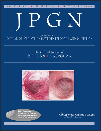Prospective Analysis of Nonadherence in Autoimmune Hepatitis: A Common Problem
This study was supported by NIH award MH63755 to E.S.
ABSTRACT
Objectives:
To prospectively assess nonadherence to medications, the relationship between nonadherence and medical outcome and the relationship between a psychiatric risk factor (posttraumatic stress) and nonadherence in patients with a diagnosis of autoimmune hepatitis.
Patients and Methods:
Data were obtained in children with autoimmune hepatitis, who had consented to prospective monitoring of adherence, during 1 year of follow-up in our pediatric liver program. An electronic monitoring device as well as posttransplant trough blood levels of tacrolimus was used to evaluate adherence. A validated self-report questionnaire was used to assess posttraumatic stress. The medical outcome measure was the maximal alanine transaminase (ALT) for each monitored patient.
Results:
Of 37 pediatric patients, 34 (15 posttransplant) enrolled. Fourteen (41%) used the monitoring device as directed. Monitor readings ranged between 28% and 94% of optimal adherence (100%). No patient took the medications exactly as prescribed. Electronic monitoring device readings correlated inversely with maximal ALT (P = 0.03, r = −0.59), and were also correlated with the tacrolimus level variability as a measure of adherence (P = 0.04, r = −0.72). Posttraumatic stress disorder questionnaire scores were correlated with both measures of adherence (for electronic monitoring, P = 0.02, r = −0.70, for tacrolimus levels, P = 0.03, r = 0.62).
Conclusions:
Nonadherence to immunosuppressants was common in this cohort, and it correlated with higher maximal ALT. Nonadherence is therefore an important risk factor for poor outcome in patients with autoimmune hepatitis. Posttraumatic stress symptoms, which were correlated with nonadherence, may serve as a focus for adherence-improving interventions.




